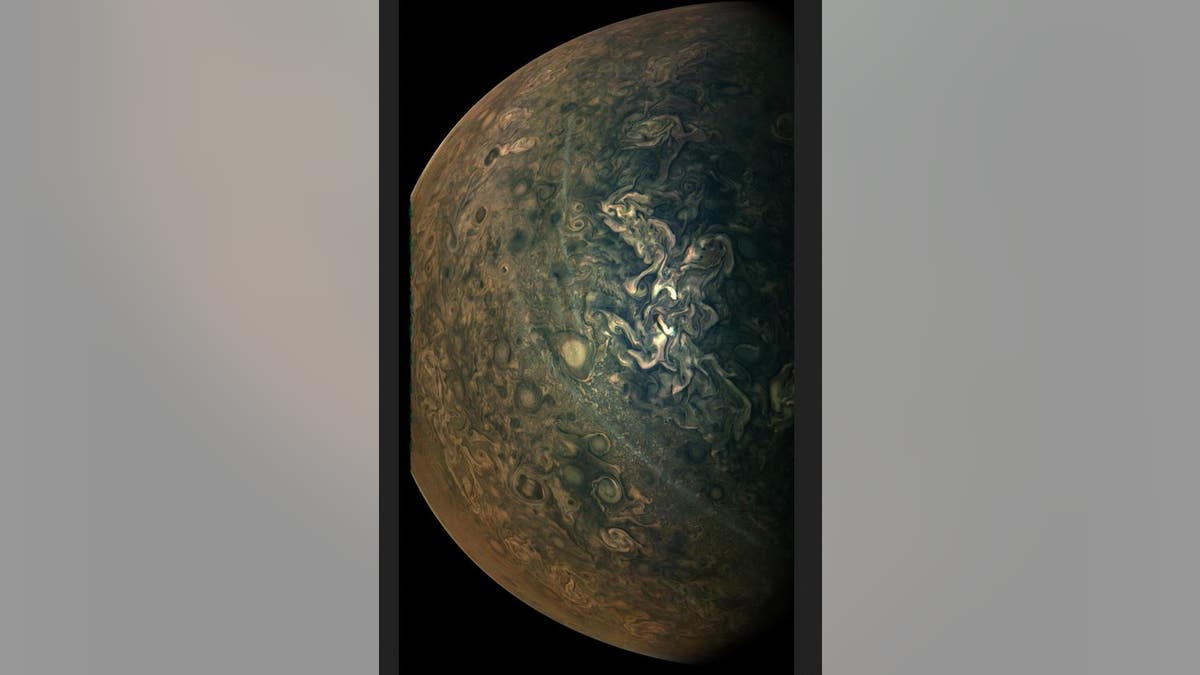CoronavirusNOW: Live updates on the COVID-19 pandemic
Special coverage of the COVID-19 public health crisis, including breaking news from around the country, exclusive interviews with health officials and live content from a variety of public health resources and press conferences.
NASA's Juno mission captured a stunning image of Jupiter's tumultuous northern region during the spacecraft's approach to the planet earlier this year.
The space agency said some notable features in the image are the long, thin bands that run through the center of the image from top to bottom. Juno has apparently seen these streaks since its first close pass by Jupiter in 2016.
The streaks are layers of haze particles that float above the underlying cloud features, according to NASA, and scientists don't yet know exactly what these hazes are made of or how they form.
LOUD TALKING CAN LEAVE CORONAVIRUS IN AIR FOR UP TO 14 MINUTES, STUDY SAYS

Jupiter is seen in this image from NASA. (NASA/JPL/SwRI/MSSS; image processing by Gerald Eichstädt)
NIH BEGINS CLINICAL TRIAL OF HYDROXYCHLOROQUINE AND AZITHROMYCIN TO TREAT COVID-19
"Two jet streams in Jupiter's atmosphere flank either side of the region where the narrow bands of haze typically appear, and some researchers speculate those jet streams may influence the formation of the high hazes," NASA explained in a post accompanying the image.
At the time the image was taken, on Feb. 17 at 12:29 p.m. ET, the spacecraft was about 15,610 miles from the planet's cloud tops, NASA said.

